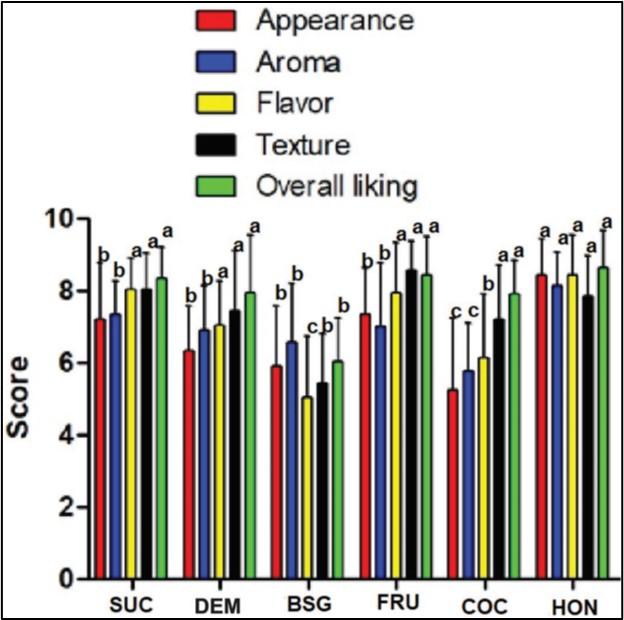Consumers’ emotional reactions to and sensory acceptance of kefir are influenced by type of sugar added, according to research in the Journal of Dairy Science®

Credit: Journal of Dairy Science
Philadelphia, December 15, 2020 – The study of human emotions can be used to gauge the sensory acceptance of dairy products. A possible route to increase worldwide consumption of sheep milk kefir may be to improve its sensory acceptance, which can be a determining factor for its inclusion in daily diets. In an article appearing in the Journal of Dairy Science, scientists studied the effects of kefir sweetened with five different sugars on sensory acceptance and emotional profile in regular consumers of fermented dairy products.
The authors of this study, from the Federal Institute of Rio de Janeiro, Fluminese Federal University, Federal Institute of Paraná, and Natural Resources Institute Finland, assessed the addition of demerara sugar, brown sugar, fructose, coconut sugar, and honey to sheep milk kefir. One hundred consumers rated the appearance, aroma, taste, texture, and overall impression, and expressed whether they were satisfied, active, loving, calm, comfortable, energetic, happy, healthy, refreshing, disgusted, worried, or upset.
Sheep produce 10.6 million tons of milk per year, or 1.3 percent of the world’s milk production. “The results of the present study are relevant for the sheep milk dairy industry, as they indicate that emotional perceptions and sensory acceptance of kefir sweetened with different agents are directly correlated,” said lead author Adriano G. Cruz, PhD, Food Department, Federal Institute of Rio de Janeiro, Rio de Janeiro, Brazil. “The evaluation of emotions evoked by products can be an important tool to obtain additional information that can be used for product optimization and market strategies by the sheep milk industry.”
The use of brown sugar decreased ratings for taste, texture, and overall impression, as well as the emotions “active,” “loving,” “energetic,” “healthy,” and “refreshing.” The use of coconut sugar decreased ratings for appearance, aroma, and taste, in addition to the feelings “refreshing” and “upset.” The use of honey improved ratings for appearance and aroma but reduced the ratings for the emotions “active,” “loving,” “energetic,” and “healthy.” Kefir samples with higher sensory acceptance scores were associated with higher levels of the feelings “satisfied,” “active,” “comfortable,” “energetic,” “healthy,” and “refreshing.”
The results of the study suggest that demerara sugar or fructose should be used as a substitute for sucrose in the production of sheep milk kefir to increase consumption.
Professor Cruz added, “These findings are interesting, as they give useful information to sheep milk processors to establish different marketing strategies for each group of samples, serving as initial guidelines.”
###
This research illustrates that the study of emotions can be used to obtain data related to products’ sensory acceptance.
Media Contact
Eileen Leahy
[email protected]
Related Journal Article
http://dx.




